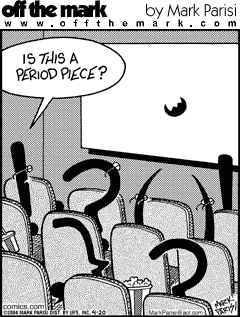HAVE TEACHING STANDARDS FALLEN?

According to new survey research by The Australian National University, academic standards of new teachers are significantly lower than a generation ago. Both literacy and numeracy levels are said to have suffered. In relation to literacy I have a theory on why a generation of less literate graduates are now emerging. During the 1960s a series of controlled research studies concluded that explicit teaching of grammar did not produce significant advances for the development of literacy. These findings were one of the contributing factors in the large-scale abandonment of grammar in the curriculum, instigated in the 1970's and 80's. Not only are students no longer being instructed in grammar, it is now becoming apparent that teachers today do not know how to instruct or advise their students in relation to grammar, let alone correct their flaws. I must say, from time to time, I have felt intimidated by a present participle or a split infinitive.....or spent a quiet moment dreading being asked to explain the difference between a nominative, objective, dative or possessive 'case'. What is to be done? Two linguists from the University of Melbourne have come up with an idea to reintroduce grammar in a more 'supple and interesting' way. In a paper titled Putting grammar back in the school curriculum they outline their ideas The debate featured in the media at present continues to focus on 'merit pay', that is, teachers whose students achieve at higher levels, or schools with overall better results, will receive more pay. I find this argument flawed from the onset in that it proposes measuring a number of variables that will be difficult to ascertain. For example, are schools that accept a certain calibre of student, thus screening out students with potential learning difficulties, to be rewarded for their discrimination? And whose the principal's pal this week? Are these new measures to be in the hands of the central figurehead of a particular school as is being suggested. What about schools that operate at the coalface of teaching in areas with high ESL student numbers? Rural schools, disadvantaged schools, the list goes on. There are so many teachers out there giving their all against considerable adversity. These new measures sound almost patronizing. Why not instead take teaching as a profession into the 21st.C with a decent minimum wage and the respect it deserves, perhaps this is in fact the best way to ensure that teaching standards are at an optimum.
Read more on the recent media coverage of these issues......
Teachers less literate than 20 years ago. August 27 2006 -'New teachers have lower standards of literacy and numeracy than those who entered teaching 20 years ago, a new study has found.'
27th August 2006, Sydney Morning Herald. Retrieved 28.8.2006.
Labor backs performance pay for teachers -'The federal government has Labor's backing for its push to link teachers' pay to their performance, but Australia's largest parents' group does not support the plan.' 28th August 2006, Sydney Morning Herald. Retrieved 28.8.2006.
Teachers need performance pay: Bishop -'Declining literacy and numeracy rates among new teachers highlight the need for performance-based pay and incentives for educators, the federal government says.' 28th August 2006, Sydney Morning Herald. Retrieved 28.8.2006.
Kids struggle with verbs, adjectives -'Fewer than half of all Year 7 students could identify verbs or adjectives and only 7 per cent could spell "definitely" in a literacy test sat by all NSW students entering high school this year.' 10th August 2006, Sunday Telegraph. Retrieved 28.8.2006.
- Teacher literacy falls with salaries -'Evidence that the academic standards of new teachers are significantly lower than a generation ago will underscore a Howard Government push for the introduction of merit pay.' Sydney Morning Herald, 28th August 2006. Retrieved 28.8.2006.
Putting grammar back in the school curriculum-Australian Style, Macquarie University Volume 3:2 June 1995. Retrieved 28.8.2006.



0 Comments:
Post a Comment
<< Home